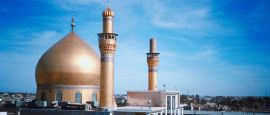Money & duty free for Iraq
Exchange rates:
Iraqi DinarC$1 = ID881.53
€1 = ID1240.5
£1 = ID1469.2
US$1 = ID1182.5
Currency & Money
The official currency of Iraq is the Iraqi Dinar (IQD). Although it is subdivided into 1,000 fils, fils are no longer in circulation due to inflation. Banknotes are in denominations of IQD 25,000, 10,000, 5,000, 1,000, 500, 250, and 50. Coins are in denominations of IQD 100 and 25, but they are rarely used in everyday transactions.
Credit cards are accepted in selected hotels and major restaurants in cities like Baghdad and Erbil. However, cash is still the most widely used form of payment across Iraq. Travellers are advised to carry sufficient cash.
ATMs can be found in major cities such as Baghdad, Basra, and Erbil, particularly in banks, shopping centres, and some petrol stations.
Local Currency (Iraqi Dinar - IQD): You must declare any amount exceeding 200,000 IQD when entering or exiting Iraq.
Foreign Currency: Any currency or items valued over 10,000 US Dollars (or the equivalent in other foreign currencies) must be declared upon entry or exit.
Foreign currency can be exchanged at banks, authorised exchange offices, and some hotels in major cities such as Baghdad and Erbil. US dollars are the most widely accepted foreign currency for exchange, followed by euros. It's recommended to carry clean, undamaged banknotes, as worn or torn notes may be rejected.




 You know where
You know where